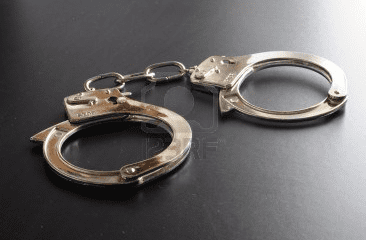So I’m reading this riveting story about a recent self-defense shooting. Now the facts behind the story are these…
A 32-year-old former security guard, Harry McCullough, was in an Omaha, Nebraska Walgreens picking up a prescription and buying ice cream when two masked men entered. He saw a gunman holding a sawed-off shotgun to a woman’s back as she held a phone to her ear. BOth robbers yelled profanities at the customers. McCullough pulled out his .40 caliber S&W pistol from his waistband and shot the armed man, firing four shots. The robber collapsed outside the store. His sawed-off shotgun blocked the front door from closing. McCullough then chased down the second robber, ordering him to get face-down in an aisle until the police arrived.
Score: armed citizen 2, armed bad guys 0. Now, let’s take the story as it was reported, and examine the generous helping of bias the reported added to the story…
The defense attorney for a man who decided to open fire and kill a teenager who was attempting to rob a store said his client was a hero who engaged in a “righteous” shooting.
The armed citizen is described as “a man who decided to open fire and kill a teenager.” The perp is described as “a teenager who was attempting to rob a store.” Note that he fails to mention here that the teenager was not just armed, but was holding a hostage at gunpoint. Note also the use of the quotations regarding the lawyer’s claim that the shoot was righteous.
Davis said his client saw the gunman hold a sawed-off shotgun to a woman’s back as she held a phone to her ear. The two yelled profanities at the customers, Davis said.
The reporter goes to great lengths here to question the veracity of the lawyer’s client. The observation that “Davis said his client saw the gunman hold a sawed-off shotgun to a woman’s back” makes it appear that the armed citizen might be spinning the truth for his own sake.
The reporter then goes on to state that the man said he fired four rounds, while the county attorney said that eight shots were fired. Notice that the reporter doesn’t state that the man is lying. But he does a great job of implying it.
Here’s another little biased bon mot from the story:
McCullough won’t face charges for killing the teen, but he is facing the rest of his life with the realization that he killed someone.
Boo friggin’ hoo. So the reporter is not interested in the fact that an armed citizen was able to foil an armed robbery. He cares not that the man apprehended the other perp without killing him. His bias suggests his primary concern is that the armed citizen won’t be able to live with himself for dispatching an armed thug.
Reading between the lines, the reporter seems to be saying “I don’t think answering violence with violence is the answer…this was a job for the police…this guy should have been arrested for carrying a loaded gun into a store…he’s a vigilante, probably looking for trouble so he could play the role of a cowboy.”
Did I miss anything?
I have a modest proposal for what’s left of the mainstream media. I suggest that they clearly state their bias in the form of a disclaimer, just as financial reporters are required to disclose any interest they might have in companies when they cover them. That way, we’d all be able to judge for ourselves how biased a story might be.
For instance, if a reporter was to disclose that they are a member of the Brady campaign, or believes that it’s immoral for citizens to walk around armed. Provide a mini-editorial from the reporter, and we’d be able to judge their willingness to set aside personal beliefs to cover a story.
Realistically, everybody has a point of view. The problem is when the line is erased between reportage and editorial content. Reporters should either eliminate bias from their reporting, or identify their stories as editorializing. By blurring the line, they devalue their reporting as well as their profession.





This is a common problem among today's "journalists" who aren't really "journalists" — they feel compelled, not just to tell us what happened, but to tell us what to think of it and how to feel about it.
I remember when a journalist ONLY reported "who, what when, where, why, and how," and to suggest that they report anything else was to impugn their integrity, something they valued more than gold, jewels, or their spouse's intact honor. They'd emulate Lot and sacrifice their virgin daughters to a mob before they would present *opinion* in anything but a clearly-designated editorial, and they would wash their hands afterward.
But now, "journalist" has devolved (and I mean that in the actual sense of de-evolved) into "a diary-keeper", a person who writes whatever the heck they feel like about a subject, injecting their own personal bias into even the simplest of "what the heck happened?" reporting.
The result? One must treat everything one reads as if it might be infected with hepatitis, and inspect the journalism for that tell-tale tinge of yellow.
Gwen, I think you've hit the nail on the head. The question i have is, how did this happen? I mean, how did we go from "integrity" to "masked bias" in a generation? I have a buddy in L.A. that believes the seeds of change were planted by the Frankfurt School, when it relocated to Columbia University during WWII, and set up shop next door to the Columbia School of Journalism. I've heard it said that a lot of journalists got into the business because they admired Woodward and Bernstein, but took shortcuts, bypassing ehtics for headlines. I don't know, but even though there's plenty of historical precedent for biased journalists, I'm afraid what we have today is a far more virulent strain than what existed back in the 1790s or with William Randolph Hearst.
Comments are closed.